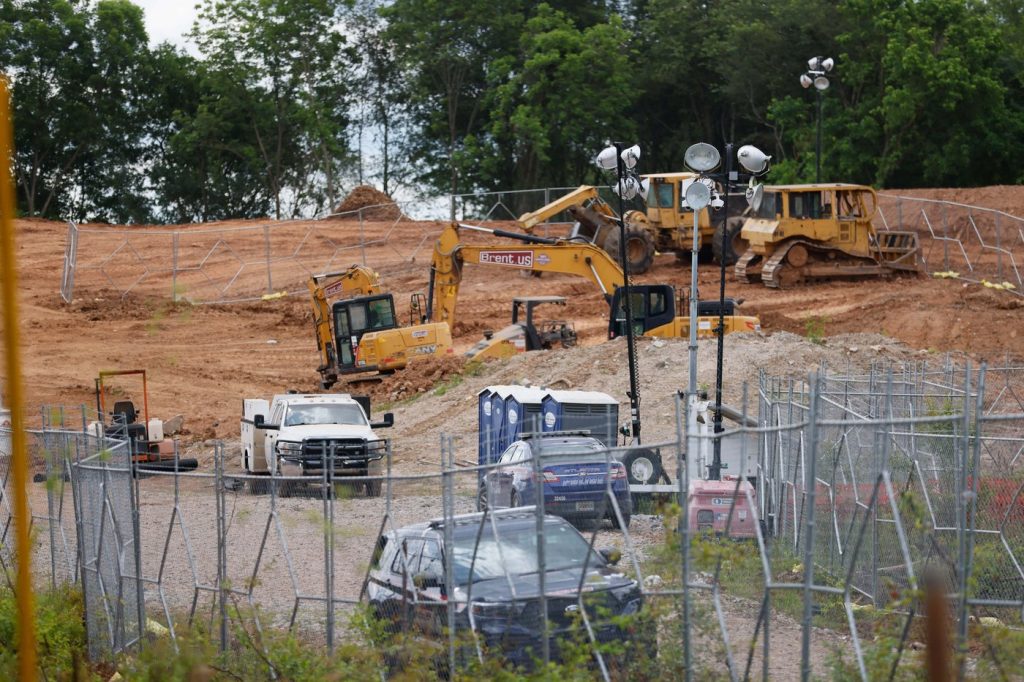ATLANTA (AP) — Priscilla Grim, a single mother, recently lost her job amidst the ongoing turbulence surrounding the "Stop Cop City" protests in Atlanta. Julia Dupuis, an aspiring writer, finds herself frequently staring at her bedroom ceiling, feeling numb due to the weight of the accusations against her. Meanwhile, Hannah Kass, a researcher in geography and environmental studies, is anxious about her career after graduating from her Ph.D. program, particularly given the serious charges she faces.
The three women are among 61 defendants indicted by Georgia Attorney General Chris Carr, accused of participating in a lengthy racketeering conspiracy to stop the construction of a police and firefighter training facility, derogatorily termed "Cop City" by its critics. The RICO (Racketeer Influenced and Corrupt Organizations) case is marked as potentially the largest criminal racketeering indictment against protesters in U.S. history, according to legal experts.
Despite their indictments occurring 20 months ago, the defendants’ cases remain unsettled, with trials initially slated to start last year hampered by procedural complications. The original judge overseeing the case has transitioned to another court, and a new judge is set to conduct a status hearing soon. The delays have left many of the defendants in a state of uncertainty, each facing up to 20 years in prison for actions they contend were merely expressions of legitimate protest rather than acts of domestic terrorism. This legal entanglement has significantly stunted a movement that rallied a multitude of activists committed to protecting a forested area, which has now been razed for a recently completed $118 million training facility.
Proponents of the project argue it is essential for replacing obsolete training facilities and enhancing officer morale. In contrast, opponents assert that it represents a militarization of the police force and has exacerbated environmental degradation in a predominantly Black community. Tensions escalated following the 2023 shooting of Manuel Esteban Paez Terán, known as Tortuguita, an activist who was present at the site during a police clearing operation. Officials maintained that Tortuguita shot and wounded a trooper during the operation; however, a family-commissioned autopsy disputed this claim, suggesting Tortuguita had their hands raised when shot.
Chris Timmons, a former prosecutor experienced in RICO cases, expressed surprise over the lack of urgency from prosecutors in seeking a trial date, noting the risks of aging cases such as diminishing witness availability. Michael Mears, a law professor focusing on RICO cases, argued that prosecutors risked weakening their case by charging so many individuals simultaneously instead of targeting alleged leaders. Mears suggested that the diminished political will to prosecute these protesters could lead to a slow demise of the case, with charges possibly being dismissed over time.
For many defendants, like Julia Dupuis, the emotional and psychological effects are severe. Dupuis, who lives in Massachusetts and has been charged with felony intimidation of an officer for distributing anti-police flyers aimed at a trooper involved in Tortuguita's killing, laments the charges that have disconnected her from her community. She expresses concerns over her stalled creative aspirations and the loss of her activist community.
Priscilla Grim, aged 51, has voiced her frustration with the lengthy process and has requested a speedy trial, even though the chances of such a request being granted seem slim. Grim, now banned from Georgia, has struggled to secure employment since her arrest, revealing that prospective employers may be hesitant due to the charges against her. She recounts an incident during her arrest where she felt threatened and misunderstood the situation, potentially exacerbating her current challenges.
Hannah Kass, 32, finds herself intertwined in the legal turmoil as well. She claims to have attended a protest more as a participant observer than as a vandal, yet is facing charges that may hinder her academic and professional future. Kass highlights her rejection of a plea deal, stating her strong belief in the right to protest and advocate for the causes she supports.
The ongoing legal battles for these defendants not only affect their personal lives but also reflect broader societal tensions regarding policing, environmental justice, and the rights of citizens to protest governmental actions. As the legal system continues to delay, the emotional and financial toll on those involved is becoming increasingly palpable.











